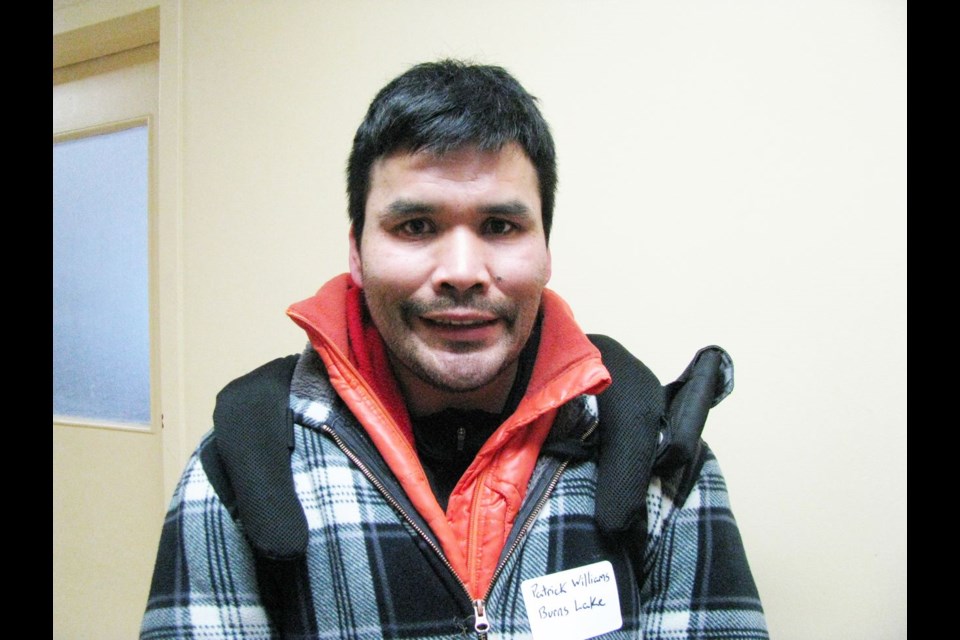He just wants more food.
Patrick Williams, a man from Burns Lake and member of the Lake Babine Nation, who lives on the streets of Prince George and has happily found shelter in an abandoned van recently, just wants enough food to eat.
Williams, with his pack firmly on his back, told Table 10 at the Indigenous Poverty Reduction Consultation held at the Native Friendship Centre Saturday afternoon that food is his priority.
According to organizers there have been 17 meetings just like the one held in Prince George in other communities across the province, with more scheduled, to offer on-the-ground insight to ultimately form the B.C. Poverty Reduction Strategy of the Ministry of Social Development and Poverty Reduction.
There were about 75 people in attendance at the consultation held in Prince George, which saw mostly members of a variety of organizations that address issues for those who struggle in poverty.
"For today we're hoping that we will be able to provide the ministry with input about the situation we have in Prince George," Dawn Hemingway, co-chair of the Minister's Advisory Forum on Poverty Reduction, said. "We can talk about what some of the really big issues are for us but also to take a look at how they link to the issues of other people across the province. Ultimately if we have a government with a commitment to bring about some very fundamental shifts where people get proper healthcare, proper education, transportation and they have a place to live, then we're going to end up saving money - if that's what you care about - and improving the quality of people's lives."
During the meeting each of 11 tables talked about what poverty looks like in the community, what immediate issues need to be addressed and what solutions there might be for those issues.
Williams, who considers himself fortunate to have found the van to sleep in at night because then he is not bothered by the drug dealers or those in the midst of their addictions, said it's pretty tough to stay clean when drugs are offered to him constantly.
"'Hey, you want such and such?' they ask and I say 'no, get that away from me'," Williams said, who has been clean for two years. "People are always bugging me to buy heroin, or to sell heroin."
Williams said he was in the throes of addiction five years ago and burned a lot of bridges. It took him three years of struggling to finally kick the habit by himself and he's determined to stay clean. Walking the streets of downtown Prince George doesn't make it easy, he added.
Williams can joke about some of the things he's gone through.
"I see some guys pan handle and they get $500, I panhandled and I got $3," he laughed.
But the reality of living on the streets comes to the forefront quite quickly.
"It's not safe," Williams said. "Every day women come up to me and tell me that people ask them to have sex for money or to sell drugs and when this happens everyday it makes it harder to say no and then they screw up and everything explodes. It's all about money."
The information gathered at each table during the consultation will be presented to the Ministry of Social Development and Poverty Reduction in the hopes that quick action will take place after that.
The Poverty Reduction Coalition recommends:
* Reduce B.C.'s poverty rate by 30 per cent within four years, and by 75 per cent within 10 years.
* Recognize that poverty is concentrated in particular marginalized groups and ensure likewise
declines in the poverty rate by 30 per cent in four years, and by 75 per cent in ten years within these groups.
* Within two years, ensure that every British Columbian has an income that reaches at least 75 per cent of the poverty line.
* Within two years, ensure no one has to sleep outside, and end all homelessness within eight
years (ensuring all homeless people have good quality, appropriate housing).



